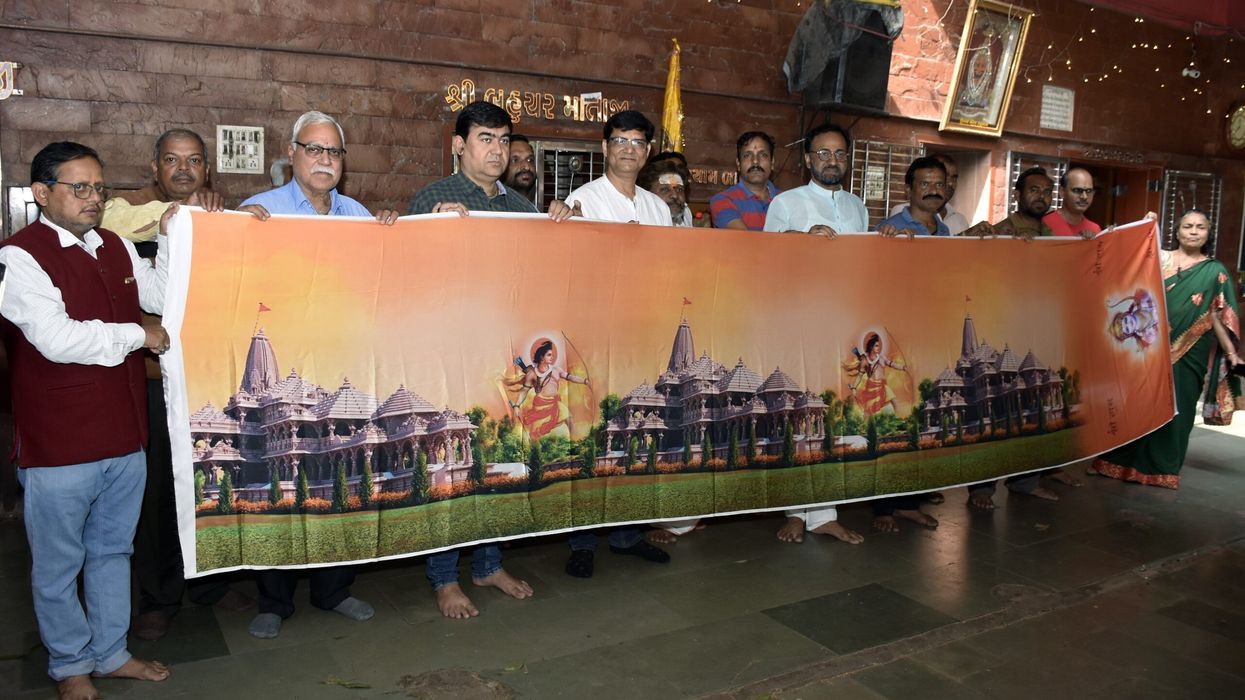A specially crafted saree from Surat, a renowned textile centre in Gujarat, is set to be dispatched for the upcoming Ram temple idol consecration ceremony in Ayodhya on January 22.
The saree, with pictures of Lord Ram and the Ayodhya temple printed on it, is meant for Lord Ram's wife Sita, reverentially known as Ma Janaki, and the first piece was offered to a temple in Surat on Sunday (7) said Lalit Sharma, a businessman associated with the textile industry in Surat.
Textile businessman Rakesh Jain, who prepared the saree in consultation with Sharma, said the cloth is meant for Ma Janaki and will be sent to the temple in Ayodhya city of Uttar Pradesh.
Sharma did not specify any date for sending the saree, but said it will reach Ayodhya before January 22.
He said the exercise has been undertaken as devotees who are unable to remain physically present in Ayodhya during the consecration ceremony want to connect with the religious event in their own way.
"There is joy all over the world because the idol of Lord Ram is going to be consecrated at the Ayodhya temple after many years. Ma Janaki and Lord Hanuman are the happiest," Sharma said.
"Sharing their happiness, we have prepared a special saree with pictures of Lord Ram and the Ayodhya temple printed on it. We offered it to Ma Janaki at a temple here. The saree will be sent to the Ram temple in Ayodhya," he said.
Sharma said if they receive a request, they will send the saree free of cost to all the temples of Lord Ram where Ma Janaki resides.
(PTI)




